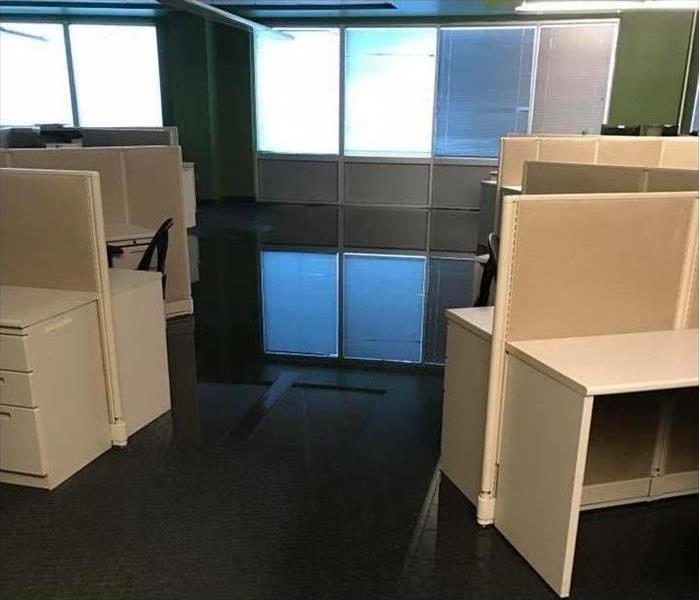Prevent Mold Damage After Flooding
4/3/2020 (Permalink)
Floodwaters, leaks following major storms, and any other type of water that seeps into your building can lead to a risk of mold growth. Unfortunately, contaminated water also carries bacteria, hazardous chemicals, and potential toxins. Even after you've successfully removed all floodwater from your property, there's still a risk that mold or mildew will set in.
Assess Dangers First
As soon as you notice flooding or standing water, be sure to address any potential dangers:
- Damages to the foundation and floors
- Wiring and live electrical systems
- Gas leaks and damaged piping
- Contaminated water
For your safety, don't work alone. Turn off the water, gas, and electricity. Be sure to contact the appropriate professionals for dangerous hazards, such as black water.
Identify Furnishings and Content To Replace
There are many items in buildings that could hold onto moisture and support mold growth long after the initial emergency is over. Some furniture can't be cleaned sufficiently to prevent the spread of mold, such as pillows and thick cushions. Most water damage cleanup professionals recommend replacing carpeting and the padding below to prevent lingering odors, carpet stains, and mold.
Carefully inspect books and papers for water damage. There are professional services that may save these damaged items, but this can quickly become very expensive. It may be best for most of those items to be replaced.
Prevent the Spread of Mold Spores
Mold spores often hide out in and travel through heating and air conditioning systems. It's best not to run the HVAC system until professionals have inspected and cleaned the ducts. Some components of the system, such as filters, must be replaced before the system runs again. If the HVAC system hasn't been affected by the flooding, it will pick up mold spores and become contaminated if you run it before your property is thoroughly cleaned.
Act Quickly To Prevent Further Damages
Even a tiny amount of mold growth can lead to a lot of damage. Any time your Stillwater, OK, property is affected by standing water, leaks, or flooding, the first 24-hours are crucial in preventing damage. Take cleanup and preventative action immediately.



 24/7 Emergency Service
24/7 Emergency Service
